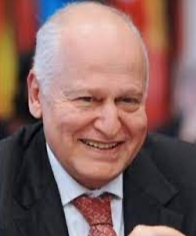
Kıbrıs’ta erken doğum sancıları mı?
15 Temmuz Barış Harekatı’nın 50. yıldönümünden bu yana Kıbrıs sorununun çözüm arayışlarında belirli bir hareketlilik yaşanıyor. Birleşmiş Milletler Genel Sekreteri (BMGS) Guterres’in, 5 Ocak 2024 tarihinde Kıbrıs Kişisel Temsilcisi olarak atadığı Maria Angela Holguin, raporunu geçtiğimiz temmuz ayında BMGS’ne sundu. Rapor kamuoyuna açıklanmadı. BMGS Guterres, New York’taki 79. BM Genel Kurulu toplantıları sırasında GKRY Lideri Christodoulides ve KKTC Cumhurbaşkanı Başkanı Tatar ile ayrı ayrı görüştü. 15 Ekim’de de her iki toplum lideriyle yine New York’ta gayri resmi bir çalışma yemeğinde bir araya geldi. Bu konuda BM tarafından yapılan açıklamada, Kişisel Temsilci Holguin’in Kıbrıs sorununun ilgili tüm taraflarıyla yaptığı temaslarda çözüm için ortak bir zemin bulunmadığı sonucuna vardığını, Genel Sekreterin her iki lideri aralarındaki görüş ayrılıklarını gidermeye teşvik ettiğini, bu çerçevede her iki liderin yakın bir gelecekte neler yapılabileceğini görüşmek üzere, BMGS’nin himayesinde geniş bir formatta gayri resmi bir toplantıya katılmayı, ayrıca Ada’da iki kesim arasında yeni bir geçiş kapısı açılması için müzakereler yürütmeyi kabul ettikleri belirtildi. BMGS’nin iki liderle gayri resmi akşam yemeğinden hemen sonra Bakan Fidan’ın BMGS Guterresi telefonla arayarak Kıbrıs konusunu görüşmesi dikkatlerden kaçmamalı. Muhtemelen kurgulanmakta olan sürece bir ayar vermek ihtiyacı hissedilmiş olmalı.
Yılbaşı tatilinden önce yapılması beklenilen gayri resmi toplantının İngiltere’nin de dahil olacağı 5’li mi, yoksa sadece anavatanların iştirak edeceği 4’lü formatta mı yapılacağı henüz netlik kazanmamış. Türk tarafı ilk aşamada güvenlik garantileri ve toprak meseleleri ele alınmayacağı cihetle İngiltere’nin katılmasına gerek olmadığı gerekçesiyle 4’lü formatı tercih ediyor.
Kaptan köşkünde dışişleri bakanları oturuyor
Gerek Ege, gerek Kıbrıs sorunlarının çözümü için kurgulanan yeni süreçlerde kaptan köşkünde bu kere Türk ve Yunan Dışişleri Bakanları Hakan Fidan ile Giorgos Gerapetritis’in oturduğunu söylemek mümkün. İki bakanın son bir senedir yürüttükleri pozitif gündem odaklı diyalog çerçevesinde Kıbrıs’ı da konuştukları anlaşılıyor. Bu açıdan 8 Kasım’daki Fidan’ın Atina ziyareti büyük önem taşıyor. Kıbrıs sorununun kalıcı bir çözüme ulaştırılmasının iki ülke arasındaki pozitif gündeme olumlu yansımaları olacağı, ama sanki Kıbrıs sorununun Türk-Yunan ilişkilerinin geliştirilmesi yönünde bir engel teşkil etmeyeceği hususunda iki bakan arasında zımni bir mutabakat var.
ABD sürecin neresinde?
Ortalıkta fazla görünmese de ABD süreci yakından takip ediyor. Hatta yönlendiriyor. Aslında yeni sürecin ilk aşaması Washington’da temmuz ayı başındaki NATO Zirvesi sırasında uygulamaya konuldu. NATO Zirvesinde hiçbir işi olmamasına rağmen BMGS’nin Kıbrıs Kişisel Temsilcisi Holguin apar topar Washington’a çağrılarak, ABD Dışişleri Bakanı Blinken’in telkiniyle Fidan ve Gerapetritis ile görüşmesi sağlandı.
Kıbrıs Rum tarafının bir şansı da 5 Kasım’da yapılacak ABD başkanlık seçimleri. Biden yönetimi giderayak Trump’ı destekleyen Yahudi lobisine karşı “Rum lobisini yanıma çekebilir miyim?” hesabıyla GKRY’ye hoş görünmek için arka arkaya adımlar atıyor. İlk olarak GKRY’ye uygulanan silah ambargosu kaldırıldı. Kısa bir süre önce de ABD ile Kıbrıs arasında Savunma İşbirliği ve stratejik diyalog anlaşmaları imzalandı. Göreve geldiği ilk günlerde “Benim adım Bidenopoulos” diyen Biden’in, Beyaz Saray’da ağırladığı son konuk da GKRY Cumhurbaşkanı Christodoulides oldu. Beyaz Saray 30 Ekim’deki görüşmeden önce öyle bir açıklama yaptı ki evlere şenlik. Açıklamada, Biden’in görüşmede ABD’nin Kıbrıs’ta BM parametrelerine uygun iki toplumlu, iki bölgeli bir federasyondan yana olduğunu teyit edeceği belirtiliyor. Görüşme yapılmadan içeriği hakkında bilgi verilmesi pek usulden değildir. Böylelikle bir anlamda araba atın önüne konuluyor. Umarız 5 Kasım’da kim seçilirse seçilsin ABD’nin körü körüne GKRY’i destekleyen bu tek yanlı Kıbrıs politikası devam etmez.
Bir yanda “egemen eşitlik ve uluslararası eşit statü olmadan müzakerelere geri dönmem” diyen Tatar, diğer tarafta “iki devletli çözüm asla” diyen Christodoulides, ortada da Kişisel Temsilci Holguin’in,” taraflar arasında ortak zemin yok” tespitini yapan raporu var. BMGS hangi cesaretle yeni bir inisiyatif alıyor? Guterres, uzun yıllar ülkesi Portekiz’de başbakanlık yapmış, BM’nin en belalı kurumlarından Mülteciler Yüksek Komiserliğini başarıyla yönetmiş deneyimli bir politikacı ve diplomat. Herhalde vardır bir bildiği.
KKTC Cumhurbaşkanı Tatar bir Denktaş gibi, bir “akıncı” gibi Türkiye’nin her dediğine evet demeyebilecek güçlü bir lider değil. Bu nedenle yeni süreç bütünüyle Ankara’dan yönetileceğe benziyor. Ankara nereye kadar gider? Günümüz Türkiye’sinde her şey mümkün. Bir de bakmışsınız, birileri bir sabah kalktığımızda, “Christodoulides gelsin TBMM’de Kıbrıs Türklerinin egemen eşitliğini kabul ettiğini söylesin, biz de GKRY’ni tanıyalım, Kıbrıs sorununu çözelim” derse şaşırır mıyız?
